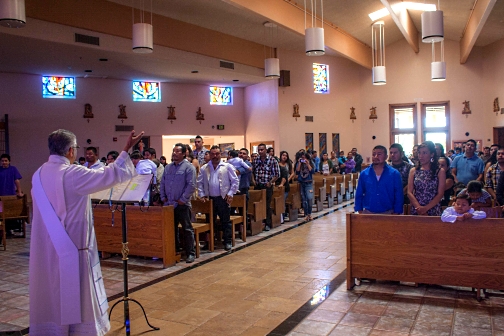 Jesus makes
the bold demand that when it comes to our relationship with
him, our “yes” must absolutely mean, “yes” and our “no” mean
absolutely “no”. There are no grey areas. No
room for negotiation or compromise. Adherence to the
will of God must encompass every aspect of our being – soul,
mind and body.
Jesus makes
the bold demand that when it comes to our relationship with
him, our “yes” must absolutely mean, “yes” and our “no” mean
absolutely “no”. There are no grey areas. No
room for negotiation or compromise. Adherence to the
will of God must encompass every aspect of our being – soul,
mind and body. Jesus revealed that living the commandments is not merely strict external obedience to rules, but an all-encompassing attitude of true righteousness. This is a very lofty demand, one that is not just a matter of making a single decision, but a lifetime process of conversion to which our actions and thoughts become more and more harmonized with the mind of God. There is no greater way to express our love for God than to obey His will at all times. Our “Yes” to the will of God is the very heart of our expression of love for Him. This is the truth from the very beginning and expressed through the exhortation of Moses:
Hear, O Israel! The LORD is our God,
the LORD alone! Therefore, you shall love the
LORD, your God, with all your heart, and with all your
soul, and with all your strength.
- Deuteronomy 6:4,5
- Deuteronomy 6:4,5
May we always pledge our absolute allegiance to the Lord our God through our obedience to His divine will in every aspect of our lives.